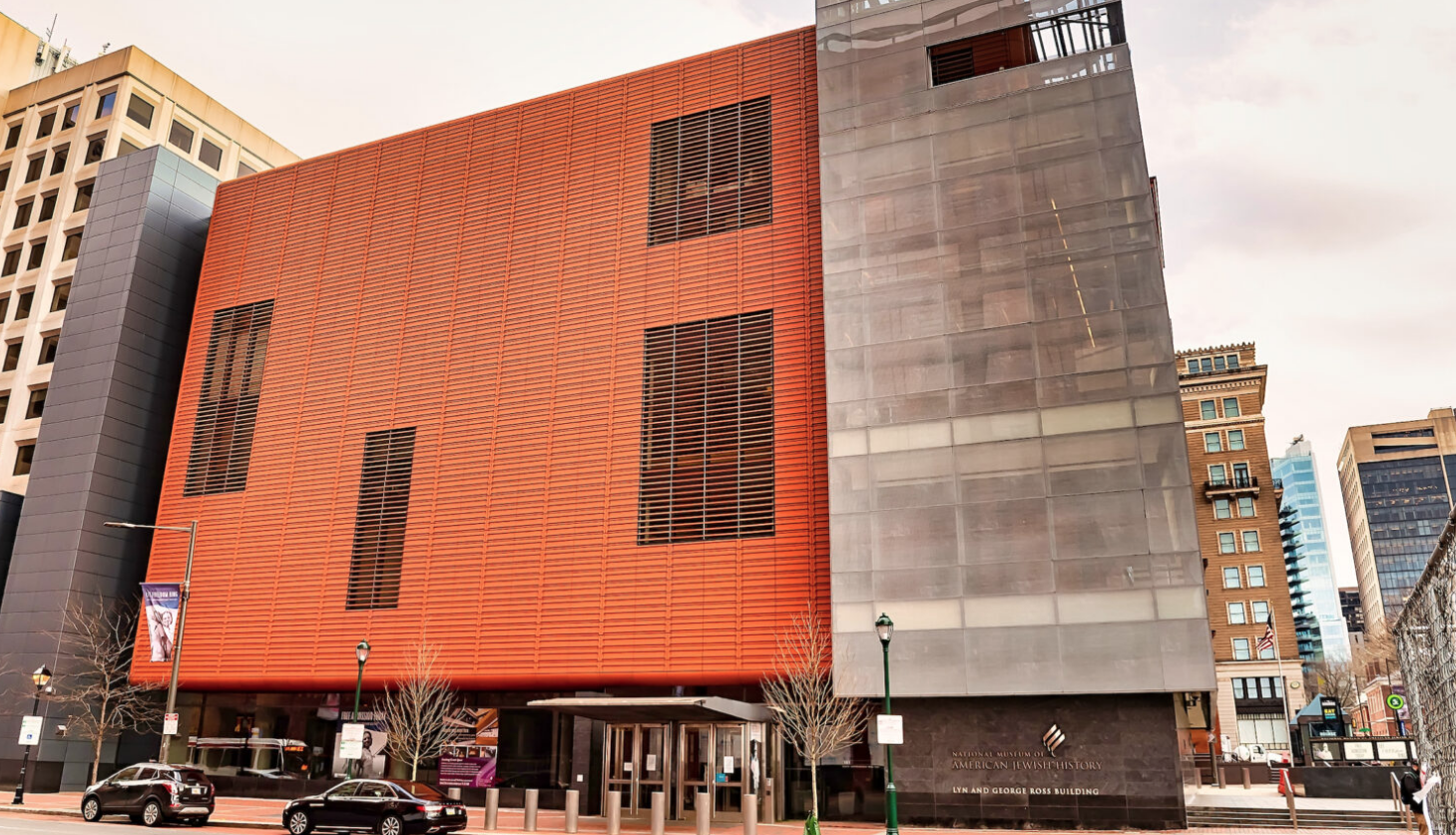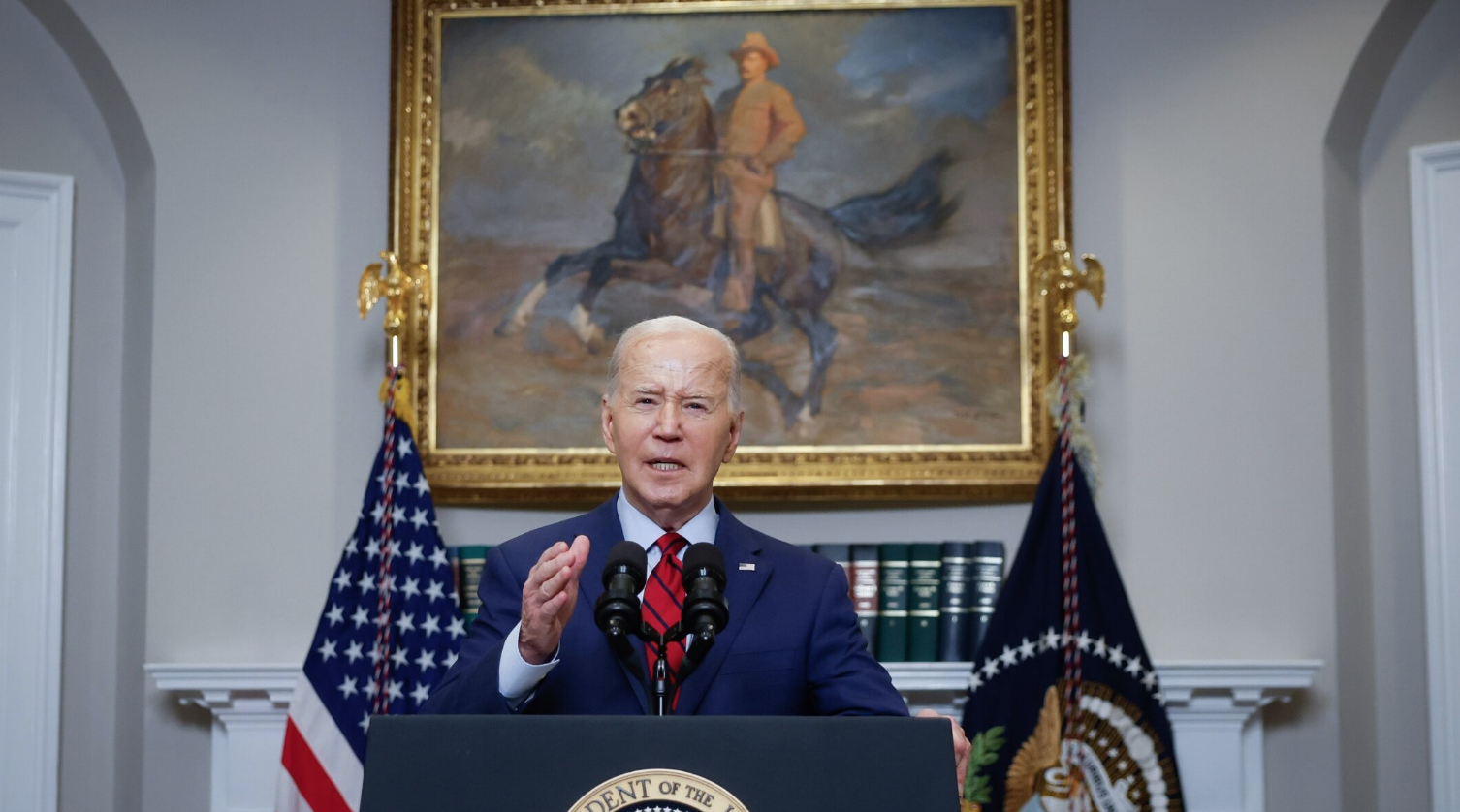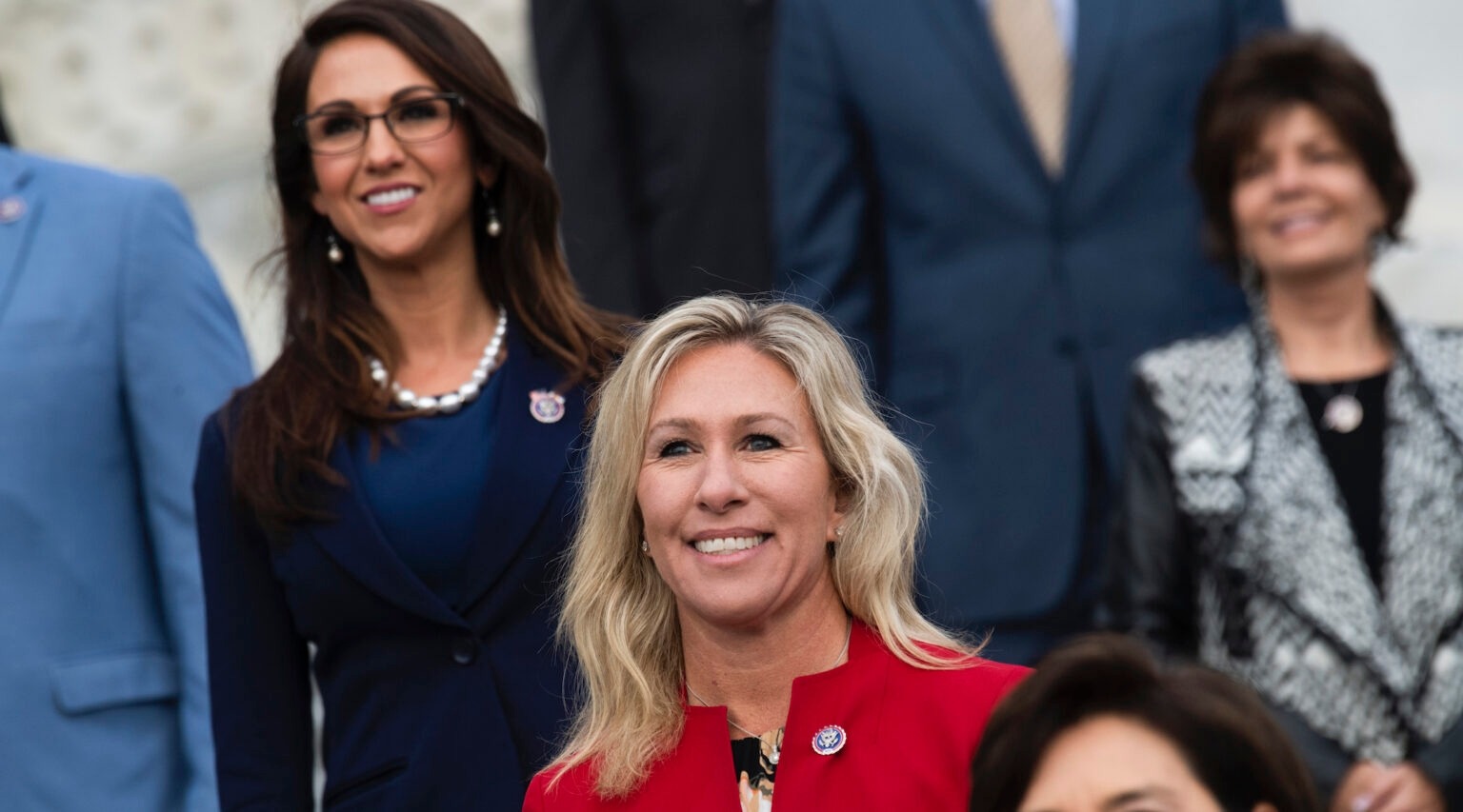(JTA) — The premier Jewish history museum in the United States may come under the umbrella of the Smithsonian, providing a level of financial security and distinction to an institution that was facing bankruptcy four years ago.
On Wednesday, a bipartisan slate of lawmakers introduced legislation to study whether the Weitzman National Museum of American Jewish History, in Philadelphia, could become part of the Smithsonian Institution. The Weitzman, as it is known, already has an affiliation with the Smithsonian, but making it a full part of the trust would make the museum eligible for federal appropriations and give it a figurative place alongside the iconic museums that line the National Mall in Washington, D.C.
Lawmakers cited the reported spike in antisemitism in recent months as a reason to include the museum in the Smithsonian trust.
“Educating all Americans, from all over the country, about these amazing Jewish impacts on our nation’s history, not only raises awareness but helps dispel harmful prejudices about our community,” Rep. Debbie Wasserman Schultz, a Florida Jewish Democrat, said in Wednesday’s press release about the legislation. Rep. Max Miller, an Ohio Jewish Republican, said, “With the recent rise in antisemitism, now more than ever it is imperative that Jewish-American Heritage be celebrated and exhibited at the world’s largest museum, education, and research complex, the Smithsonian Institution.”
If the initiative bears out, it would be a remarkable turnaround for a museum that was on the cusp of closure four years ago. In early March 2020, right as COVID-19 hit, the museum filed for bankruptcy protection in the face of a $30 million construction debt. It was rescued the following year by a donation from footwear entrepreneur Stuart Weitzman, giving the museum its current name.
The museum, under the leadership of Misha Galperin, is now said to be in economic health. Galperin said in November that this year would be his last as CEO. Like Smithsonian museums, it offers free admission.
The museum welcomed Wednesday’s bill in a statement and said that the Jewish community merited the attention that the Smithsonian has paid in recent years to other minority communities. The National Museum of African American History and Culture opened in Washington in 2016.
“The Smithsonian is the world’s largest museum and research complex,” the Weitzman said. “Several of its 21 museums — including the National Museum of African American History and Culture, the National Museum of the American Indian, and the National Museum of the American Latino (as well as a potential National Museum of Asian Pacific American History and Culture that is currently under study) — explore and educate about America’s minority communities. The American Jewish community merits a Smithsonian museum.”
The Smithsonian, a trust, runs its museums with a combination of fundraising and federal appropriations, with percentages varying among its many institutions. Most Smithsonian museums are in Washington D.C. and have free admission, although several are further afield, including the Cooper Hewitt, Smithsonian Design Museum in Manhattan.
The bill would establish a commission of nine people to study the feasibility of the move, eight voting members appointed by leaders of both chambers and a non-voting member appointed by the museum board. Their report to Congress on the feasibility of the museum joining the Smithsonian would come within two years of the commission’s launch.
The other sponsors of the bill include Sens. Bob Casey and John Fetterman and Rep. Brendan Doyle, Democrats from the museum’s home state, Pennsylvania; Rep. Mike Turner, an Ohio Republican; Sen. Mike Crapo, an Idaho Republican; Sen. Susan Collins, a Maine Republican; and Sen. Jacky Rosen, a Nevada Jewish Democrat.
The bill is endorsed by the Anti-Defamation League, the Jewish Federations of North America, and the Conference of Presidents of Major American Jewish Organizations.





